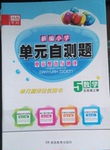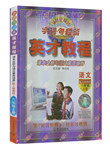题目内容
只有不断探索未知的事物,我们才有可能有所发现有所发明。(Only…)
Only by exploring the unknown world continuously can we have discoveries and inventions.

练习册系列答案
 新编小学单元自测题系列答案
新编小学单元自测题系列答案 字词句段篇系列答案
字词句段篇系列答案
相关题目
Ⅳ 写作(共两节,满分40分)
第一节 基础写作(共1小题,满分15分)
【写作内容】
请使用5个规范的英语句子描述你参加的一次以 “ Protect Our Earth ”为
主题的英语演讲比赛, 短文要包括以下所给的全部信息内容。
| 时间 | 8月26日 (上星期六) |
| 地点 | 广州市青少年宫 |
| 过程 | 查资料; 写演讲稿; 一上台很紧张, 但很快平静下来; |
| 结果 | 获第三名 |
| 感受 | 一方面自信心很重要; 另一方面只有在不断使用英语的过程中, 语言水平才能得到提高。 |
【写作要求】 1.只能使用5个句子表达全部内容;
2.文中不能出现真实姓名和学校名称。
【评分标准】 句子结构准确,信息内容完整,篇章结构连贯
